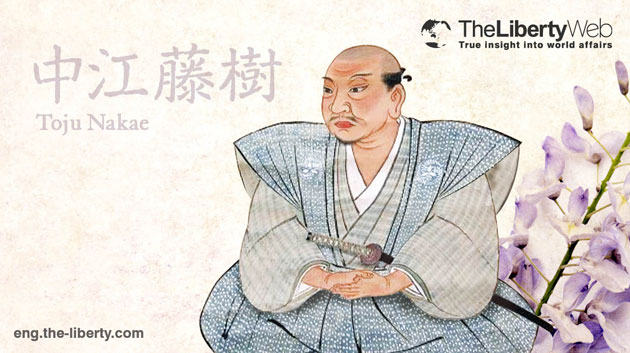The Spiritual Messages of Toju Nakae
The Relationship Between Japan and China According to the Great Confucian Thinkers
The spread of Confucianism served as a spiritual pillar for the people of Japan between the Edo and Meiji Periods, and it became the driving force behind the revolution during the Meiji Restoration.
Through the spiritual sayings of four great Confucian thinkers, we would like to examine the reasons why Confucianism blossomed more in Japan than in its country of origin, China, and consider the necessity for Confucianism in the modern era.
‘The Spiritual Messages of Toju Nakae’
28th December, 2012 – A Public Recording at the General Headquarters of Happy Science
Toju Nakae
(1608 – 1648), known as ‘the Sage of Omi’, was the Japanese founder of the Neo-Confucianism, which was originally established by Wang Yangming. Toju preached about the impact of losing the Confucian virtue of filial piety along with the root of education in contemporary Japan and so on. He also alluded to the profound relationship between Confucianism and the Japanese Shinto religion.
The Loss of Filial Piety Led to the Bankruptcy of the Nation.
The spirit of Toju Nakae pointed out that efforts had been made to dismantle Japanese culture after the Second World War. This included a demolition of the Japanese household system. This household system was based on the tenets of ‘filial piety’, and the army of the occupation eradicated the filial piety that Confucians advocated. The military also eliminated the teachings on memorial services to ancestors that have been taught by Buddhism and Shintoism.
Toju analysed the root cause of the budget deficit, which an increase in social security caused. It has become a major issue in contemporary politics, and he said that politicians currently report on the problem with pensions, healthcare, and medical treatments, but if they were all to re-establish the concept of ‘filial piety’, then the ultimate result would not be a national bankruptcy, which many leaders predict for the future of Japan.
Edo Japan Surpassed China
With regard to current educational problems, he pointed out a lack of moral education. Toju said that the present-day system excessively trivializes morals, and teachers are increasingly unable to address them.
He added, moreover, that with regard to the absence of religious convictions as a basis for morality, most of society has lost their faith and spirituality. The general public has become spineless, and the country is in a miserable state now. He expressed teachers firstly need to develop their religious faith.
Toju also expressed criticism with respect to the abolition of high school tuition fees, implemented by the then ruling Democratic Party, and said what at first glance seemed like a good idea, could also be viewed as a further trivialization of the educational system. According to Toju, there is nothing worse than a free education. Even for a poor family, one of the greatest pleasures afforded to a parent once used to be the ability to spend money on tuition and get a child into a good school.
In addition, Toju elaborated on the historical significance of the popularity of Confucianism during the Edo Period. Toju emphasized how Japanese academic prowess had already surpassed that of China by the Edo Period. He remarked, “During the Edo Period, advances in Japanese scholarship surpassed those of China, Confucianism’s country of origin. This cultural background supported the Meiji Restoration. Scholarship actually took the place of the Edo class system. The academics of Japan are highly advanced and surpassed that of China. And the people of the Edo period developed a culture which became a model for the world.”
Toju Nakae was a pioneer in creating the advancement of Confucian culture during the Edo Period, and his spirit revealed that he was also a major player around the time of the founding of Japan (he was formerly Ame no minaka nushi no kami, the Lord of the August Center of Heaven). Furthermore, this Shinto god guided Confucius (from the spirit world). It reincarnated as Toju Nakae, the founder of the Japanese version of Neo-Confucianism, which Wang Yangming originally established in China, and Toju became a catalyst for the creation of Japan’s spiritual spine. Through this lineage, the patriots of the Meiji Restoration such as Shoin Yoshida were born.



















